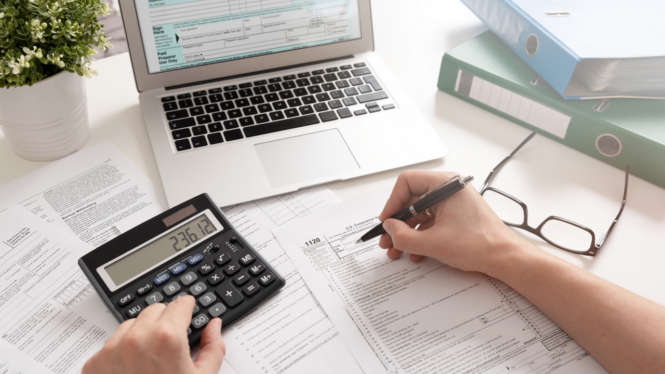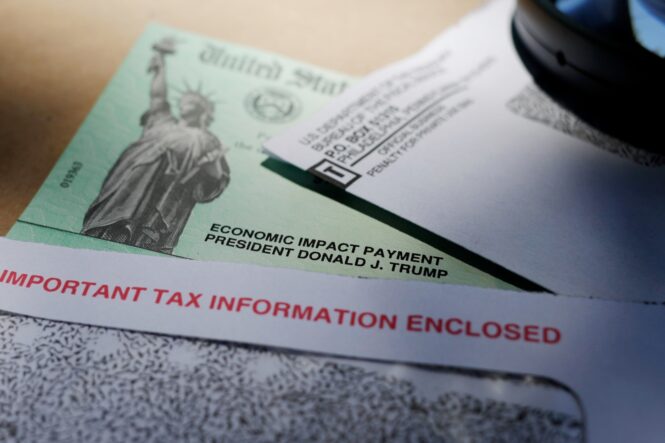A tax rebate is a financial return on taxes paid over the required amount during the fiscal year. This situation commonly occurs due to overpayment or applicable tax reliefs that reduce the overall tax liability. It’s essential to understand that a rebate is not a bonus or a gift from the government, but a refund of your own funds.
Knowing when and how you qualify for a rebate can help you better manage your finances and potentially recover significant amounts of overpaid money.
Eligibility Criteria for Tax Rebates
Eligibility for a tax rebate depends on several factors, primarily the overpayment of taxes in a given fiscal year. This overpayment can occur for various reasons, such as excessive withholding of tax at source or eligibility for certain reliefs and allowances that were not considered initially.
The criteria for eligibility differ based on employment status, income level, and the specific reliefs applicable to your situation.
Staying informed about these eligibility criteria is crucial for any taxpayer, ensuring that they don’t miss out on potential refunds.
Types of Tax Rebates Available

In the UK, various types of rebates are available, catering to different circumstances of taxpayers. For employed individuals, a common source of rebates is job-related expenses that are not reimbursed by employers.
These can include travel costs, uniforms, and professional subscriptions.
Savers can also claim rebates on interest earned from their savings if taxes have been deducted. Additionally, pensioners may be eligible for rebates based on their pension contributions, especially if they are higher-rate taxpayers.
Each type of rebate comes with its own set of conditions and understanding these is crucial in maximising the potential rebates you can claim.
How to Claim a Tax Rebate
Claiming a tax rebate in the UK is a straightforward process, but it requires careful attention to detail. The first step is to determine your eligibility and the type of rebate you can claim. You can then proceed to fill out the necessary forms, which vary based on the rebate type.
For many employed individuals, this involves completing a P87 form either online or through post, especially for job-related expenses.
Providing accurate information and necessary proofs, such as receipts or bank statements, is crucial for a successful claim. It’s also advisable to keep records of your claim in case of any future queries from HM Revenue and Customs (HMRC).
Calculating Your Rebate Amount
Determining the amount you can claim as a rebate involves understanding your total income, tax paid, and eligible deductions or allowances. The rebate amount is essentially the difference between what you’ve paid and what you should have paid, accounting for any reliefs or allowances.
To calculate this, you need to accurately assess your income from all sources and apply the current rates and allowances.
Using online calculators can be a helpful way to estimate your potential rebate, but seeking advice from a tax professional such as tax rebate specialists UK may provide more accuracy, especially in complex cases.
Common Misconceptions About Tax Rebates

Many people harbour misconceptions about rebates, often leading to confusion or missed opportunities. One common myth is that all taxpayers are automatically assessed for rebates. In reality, it’s the taxpayer’s responsibility to claim any rebate due.
Another misconception is that rebates are only for the self-employed or high-income earners.
In fact, rebates are applicable to a wide range of taxpayers, including employed individuals with job-related expenses. Understanding the truths behind these misconceptions is crucial for taking full advantage of the rebate system.
Importance of Filing Taxes Accurately
Accurate tax filing is paramount in the UK’s fiscal system. Not only does it ensure compliance with legal obligations, but it also affects the rebate process. Inaccuracies in financial filings can lead to under or overestimation of tax liabilities, impacting the rebate you might be eligible for.
Accurate filings require keeping detailed records of income and expenses and understanding the applicable laws and rates. This diligence helps in avoiding potential issues with HMRC and ensures you receive the correct rebate amount.
Tax Rebate vs. Tax Deduction: Key Differences
Understanding the difference between a rebate and a deduction is crucial. A tax deduction reduces your taxable income, thereby lowering the tax you owe. In contrast, a rebate is a refund on the tax you have already paid over your actual liability.
While deductions lower the initial amount due, rebates are concerned with adjusting overpayments post the assessment. Both play important roles in the tax system but operate at different stages of the calculation process.
Timelines for Receiving Your Tax Rebate
When you’re expecting a tax rebate, knowing when it will arrive is crucial. HMRC usually processes rebates within two to six weeks after receiving your return. However, this timeframe can vary based on several factors, such as the complexity of your return or if HMRC requires additional information.
Electronic refunds are faster, typically reaching your account within five days after processing. Paper cheque refunds might take longer, arriving in two to three weeks post-processing. Keep in mind, during peak times like the end of the financial year, processing may take longer.
Rebates and Government Stimulus Packages

Government stimulus packages occasionally include rebates as a measure to boost the economy. In these instances, eligibility and amounts are determined by specific criteria set out in the package. These rebates aim to increase consumer spending and stimulate economic growth.
The impact of these rebates can vary. For example, during the COVID-19 pandemic, the UK government issued stimulus payments to support individuals and businesses. Understanding how these packages work and how they affect your financial situation is essential for effective financial planning.
Avoiding Rebate Scams
Awareness of tax rebate scams is critical. Scammers often impersonate HMRC, offering enticing rebates via phone, email, or text. To avoid scams, remember that HMRC will never ask for personal or financial information in these ways.
They typically communicate via post or through your personal account. If you receive a suspicious contact, do not provide any information.
Instead, verify the communication directly with HMRC. Being cautious and knowledgeable about the usual methods of communication from HMRC can help you avoid falling victim to these scams.
Making the Most of Your Rebate

Receiving a tax rebate presents an opportunity for financial growth. Instead of treating it as extra spending money, consider using it to improve your financial health. Paying off debts, saving for emergencies, investing in your future, or even contributing to a retirement fund are excellent ways to use this money.
Wise management of your rebate can provide long-term benefits, contributing to your financial stability and future prosperity. It’s a chance to make a significant impact on your financial journey.
 Imagup General Magazine 2024
Imagup General Magazine 2024



